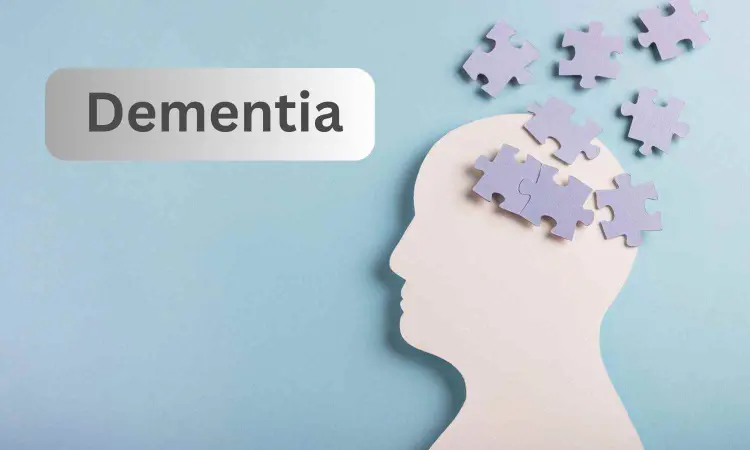- Home
- Medical news & Guidelines
- Anesthesiology
- Cardiology and CTVS
- Critical Care
- Dentistry
- Dermatology
- Diabetes and Endocrinology
- ENT
- Gastroenterology
- Medicine
- Nephrology
- Neurology
- Obstretics-Gynaecology
- Oncology
- Ophthalmology
- Orthopaedics
- Pediatrics-Neonatology
- Psychiatry
- Pulmonology
- Radiology
- Surgery
- Urology
- Laboratory Medicine
- Diet
- Nursing
- Paramedical
- Physiotherapy
- Health news
- Fact Check
- Bone Health Fact Check
- Brain Health Fact Check
- Cancer Related Fact Check
- Child Care Fact Check
- Dental and oral health fact check
- Diabetes and metabolic health fact check
- Diet and Nutrition Fact Check
- Eye and ENT Care Fact Check
- Fitness fact check
- Gut health fact check
- Heart health fact check
- Kidney health fact check
- Medical education fact check
- Men's health fact check
- Respiratory fact check
- Skin and hair care fact check
- Vaccine and Immunization fact check
- Women's health fact check
- AYUSH
- State News
- Andaman and Nicobar Islands
- Andhra Pradesh
- Arunachal Pradesh
- Assam
- Bihar
- Chandigarh
- Chattisgarh
- Dadra and Nagar Haveli
- Daman and Diu
- Delhi
- Goa
- Gujarat
- Haryana
- Himachal Pradesh
- Jammu & Kashmir
- Jharkhand
- Karnataka
- Kerala
- Ladakh
- Lakshadweep
- Madhya Pradesh
- Maharashtra
- Manipur
- Meghalaya
- Mizoram
- Nagaland
- Odisha
- Puducherry
- Punjab
- Rajasthan
- Sikkim
- Tamil Nadu
- Telangana
- Tripura
- Uttar Pradesh
- Uttrakhand
- West Bengal
- Medical Education
- Industry
Falling in elderly is associated with increased risk for future dementia: JAMA

A new study published in the Journal of American Medical Association suggests cognitive screening for senior citizens who have sustained fall and needed hospitalization or the emergency room. According to this study, older persons who have moderate cognitive impairment, which is a prelude to Alzheimer's disease and associated dementias (ADRD) are more likely to fall. However, it is unknown how likely it is for an older adult to have dementia following a fall. Thus, this study by Alexander Ordoobadi was to ascertain the likelihood of a new ADRD diagnosis in older individuals following a fall.
The Medicare program Fee-for-Service data from 2014 to 2015 were analyzed in this retrospective cohort analysis, with follow-up data available for at least a year following the index visit. Adults who were of 66 years of age and older with severe injury that required medical attention in the emergency department (ED) or an inpatient stay were included in the study as participants. The period of data analysis was August 2023 to July 2024. The primary exposure, as determined by the International Classification of Diseases, Ninth Revision (ICD-9) and ICD-10 external cause of injury codes, was falling. A Cox multivariable competing risk model that accounted for the competing risk of mortality and adjusted for possible confounders was employed to evaluate the probability of receiving a new ADRD diagnosis within a year following a fall.
A total of 2,453,655 older adult patients with traumatic injuries were included in the study where the mean (SD) age was 78.1 (8.1) years. Of this, 1,522,656 (62.1%) were female, 124,396 (5.1%) were Black and 2,232,102 (91.0%) were White.
A fall constituted the mechanism of injury in 1,228 847 instances (50.1%). Among injury mechanisms, ADRD was detected more often within a year after a fall. Following a fall, the incident dementia diagnosis had an uncorrected hazard ratio (HR) of 1.63.
Upon doing a multivariate Cox competing risk analysis it was shown that falling was independently linked to an elevated chance of dementia diagnosis in older persons.
In this cohort research, new ADRD diagnoses were more prevalent after falls than after other types of injury, with 10.6% of older persons identified with ADRD within the first year after a fall. Overall, the findings of this study support the introduction of cognitive screening in older persons who have an injurious fall that leads to an ED visit or hospital admission in order to improve the early detection of ADRD.
Source:
Ordoobadi, A. J., Dhanani, H., Tulebaev, S. R., Salim, A., Cooper, Z., & Jarman, M. P. (2024). Risk of Dementia Diagnosis After Injurious Falls in Older Adults. In JAMA Network Open (Vol. 7, Issue 9, p. e2436606). American Medical Association (AMA). https://doi.org/10.1001/jamanetworkopen.2024.36606
Neuroscience Masters graduate
Jacinthlyn Sylvia, a Neuroscience Master's graduate from Chennai has worked extensively in deciphering the neurobiology of cognition and motor control in aging. She also has spread-out exposure to Neurosurgery from her Bachelor’s. She is currently involved in active Neuro-Oncology research. She is an upcoming neuroscientist with a fiery passion for writing. Her news cover at Medical Dialogues feature recent discoveries and updates from the healthcare and biomedical research fields. She can be reached at editorial@medicaldialogues.in
Dr Kamal Kant Kohli-MBBS, DTCD- a chest specialist with more than 30 years of practice and a flair for writing clinical articles, Dr Kamal Kant Kohli joined Medical Dialogues as a Chief Editor of Medical News. Besides writing articles, as an editor, he proofreads and verifies all the medical content published on Medical Dialogues including those coming from journals, studies,medical conferences,guidelines etc. Email: drkohli@medicaldialogues.in. Contact no. 011-43720751


